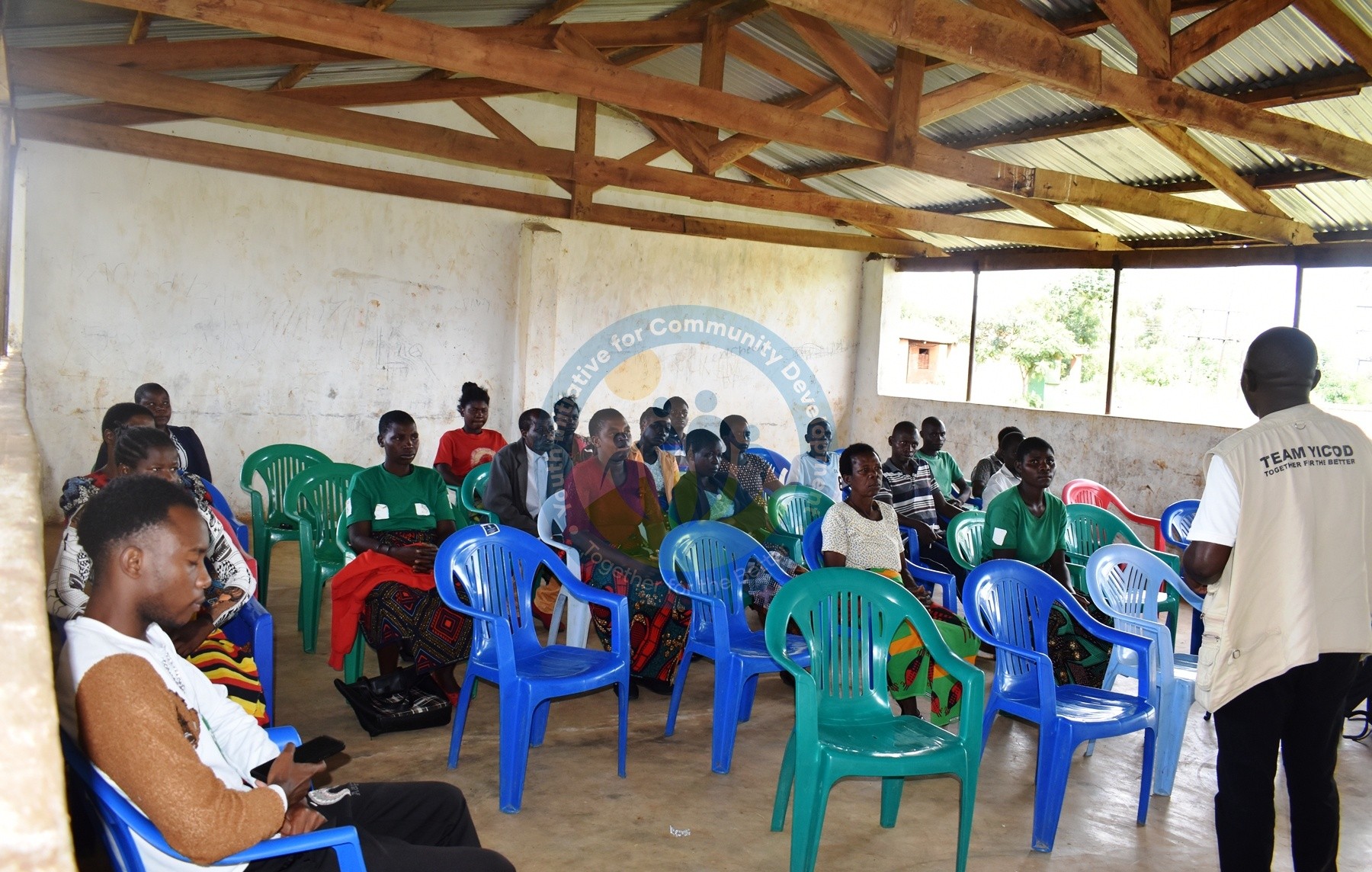Sixty young people and women from the area of Senior Chief Kachere in Dedza district have been trained in tree nursery and woodlot management through core support from IM Swedish Development Partner.
The trained rights holders are from three respective Group Village Heads (GVH): Fosa, Kachere, and Mkomawathu 2. Each GVH is expected to establish two tree nurseries, making a total of six nurseries that are expected to have over 12,000 trees of different species sown.
The training sessions were conducted in series, totaling three as per the number of GVHs.
Speaking during the training in GVH Fosa, one of the participants, Wiseman Kauche from Sitenala Village, expressed that the training was highly educational. He emphasized the need for young people to plant more trees.
“The future belongs to us, the young people, hence the need to conserve the environment by planting more trees that will help build resilience to climate change impacts and mitigate them. The impacts of cyclones and strong winds can be lessened if we plant more trees. As young people, we will ensure that we establish woodlots, as trees also provide us with economic benefits when we harvest and sell timber and firewood,” said the 32-year-old.
Another participant, Deliwe Jacob, a woman from Kufunda Village in GVH Kachere, described the training as an eye-opener, stating her plans to plant fruit trees that will enhance the nutrition of her family members once they begin producing fruit.
“The fruit trees we plant at home will help us consume the recommended six food groups, as you know fruits are so important in our diets. We want to thank YICOD for providing us with this training, as it has imparted significant knowledge,” she said.
Jacob’s sentiments were echoed by Enelesi Isaac, a woman and a champion for nutrition initiatives in GVH Mkomawathu 2, who stated that they will ensure they plant more trees in the area to restore the weather pattern so that rains can return to what they used to be when the area had abundant forests before they were depleted.
“We need to restore the forest reserves that we had here by planting more trees so that we can receive sufficient rains in a timely manner,” she said.
Emiliyo making his presentation during the training
In his remarks, Senior Chief Kachere urged the training participants not to keep the knowledge to themselves but to share it with others. He encouraged everyone to plant and grow trees, including fruit trees, to enhance the nutrition of the community and improve their economic livelihoods.
“Everyone here needs to plant trees at their homes, including various fruit trees, to boost nutrition and income. We want to make Dedza, especially this area, one of the regions that feed others with fruits. It is essential to take the skills and knowledge gained from this training seriously and to apply them. Let us also share this knowledge with others,” he said.
Assistant Forestry Officer for Dedza district, Cosmas Sesani, advised the participants to ensure that they plant trees that help restore soil fertility, such as Faidherbia albida, popularly known as Msangu in the local vernacular.
In his remarks, Land Resources Conservation Officer for the Dedza district council, Franklin Gomani, encouraged participants to take the training seriously and ensure that each household plants at least two trees.
YICOD’s Project Coordinator, Reonard Emiliyo, reminded the rights holders of the importance of the core support from IM Swedish Development Partner for their livelihoods and for future generations in Malawi, particularly in building resilience against climate change, economic empowerment, and nutrition.




